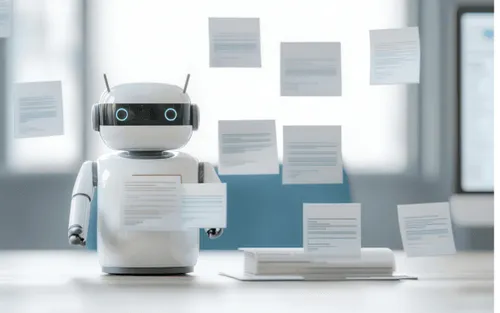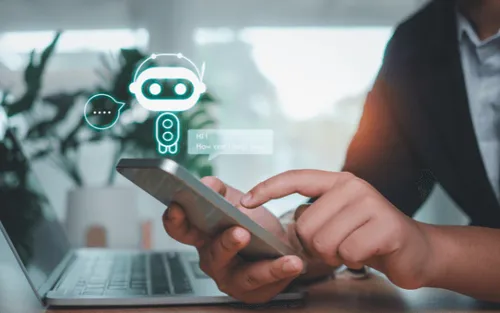Artificial Intelligence (AI) is rapidly transforming the job market, and with its rise and development, it is natural for debates to emerge about how replaceable human presence is in different work areas where AI has gained ground.
As in any debate, there are several sides, positions, and opinions on the matter: some say AI is the best thing that has ever happened to us, others claim it’s harmful, some believe excessive use makes us stop thinking, there are ethical concerns, and questions about whether it’s a tool or if we are actually teaching it how to replace us in the future. Beyond all these discussions, the reality is that AI is already part of our lives, and in the workplace, it is seen as another tool, a desirable skill in candidates, and even a requirement in certain fields. The question is: are we ready for a future where our most powerful tools could also replace us?
This article explores part of this debate and offers ideas on how to integrate artificial intelligence as a tool to boost your work.
Can AI Replace Your Job?
The short answer is: it depends. Artificial intelligence facilitates the automation of repetitive and routine tasks, so if your job consists solely, for example, of notifying your boss every time a new entry is added to an Excel sheet, you will most likely be replaced by AI. Since we know your work probably requires more complex tasks, we can say AI will not replace you, but it will make your life much easier if you know how to use it and position you as a better candidate in the job market.
Before falling into pessimism about whether AI will replace you, let’s consider what it can do for you and how you can use it to your advantage.
The Trick to Using AI in Your Field
Since each case requires a different approach to implementing artificial intelligence, here are some general guidelines you can follow when analyzing how to integrate it into your workflow:
- Identify repetitive and low-value tasks in your business, such as the initial stage of customer service, sending scheduled messages, or gathering data for analysis.
- Think about tasks that can be delegated through a clear and concise prompt: analyzing emails, summarizing reports, creating comparison charts, generating images from instructions, etc.
- Research which AI models are commonly used in your specific industry.
- Present your situation and problem to AI and ask for specific ideas and solutions.
Benefits of AI as a Tool
Artificial intelligence has opened up a world of possibilities made visible only through the ingenuity and creativity with which we use it, proving that the human factor remains vital.
One obvious benefit is increased productivity. AI works like having an assistant available 24/7, allowing us to improve task execution times.
In areas like marketing, AI has shown its value in predicting consumer behavior patterns and analyzing data, offering strategic recommendations to brands for campaigns aimed at specific audiences.
In short, AI not only optimizes processes but also allows us to offer more personalized and efficient services.
The Need for Adaptation
Despite the risks, AI also represents a unique opportunity for those willing to adapt. Let’s see it as a tool, a means to take us further — or faster — to our goals.
The job market has already changed since the implementation of artificial intelligence, and only those who learn to work with it will be better positioned, more productive, and able to enjoy its benefits.
I invite you to think about how technology can make your work easier, help you improve your skills, and stand out in your field. Remember: tools are meant to be used!









